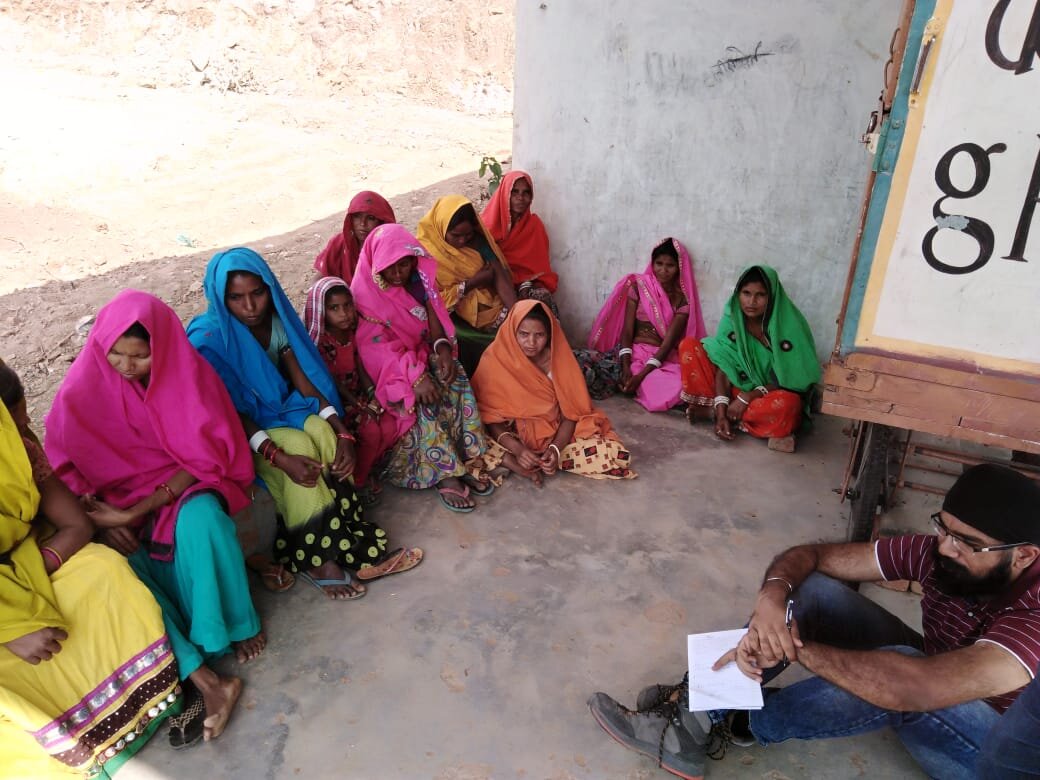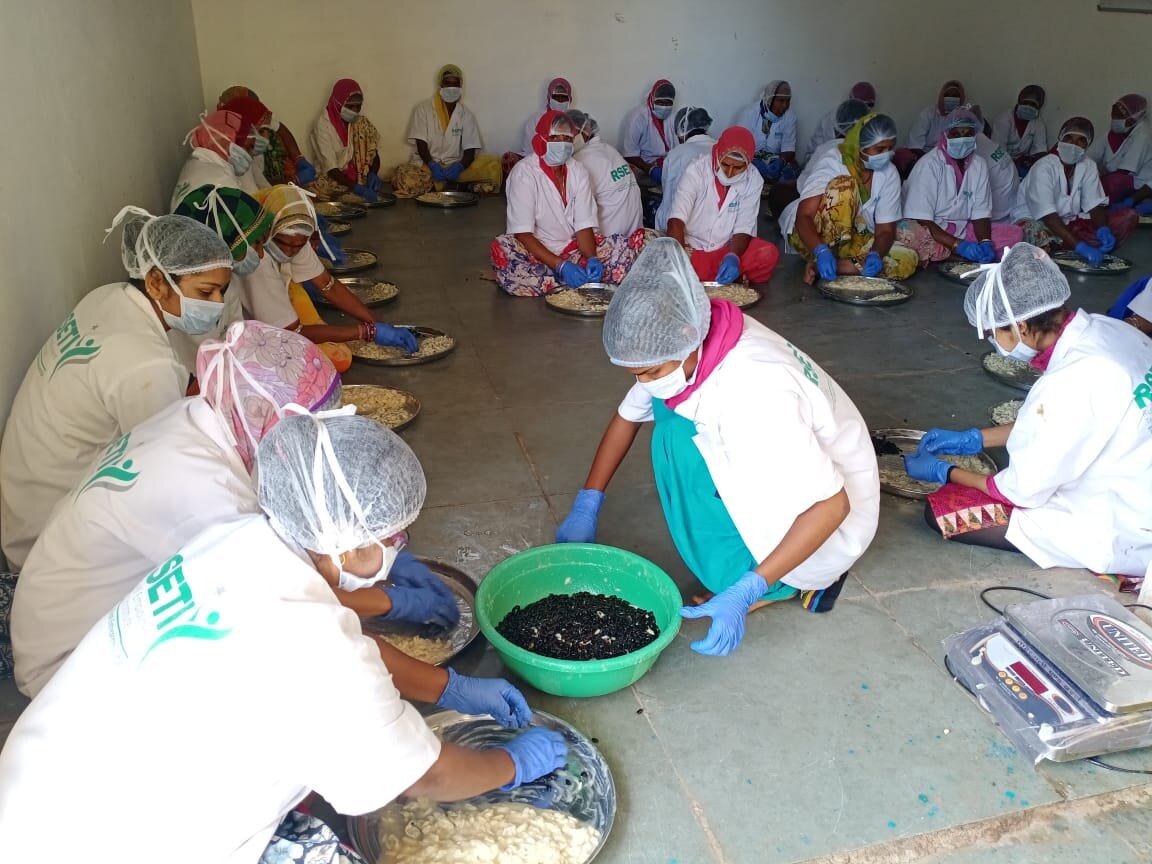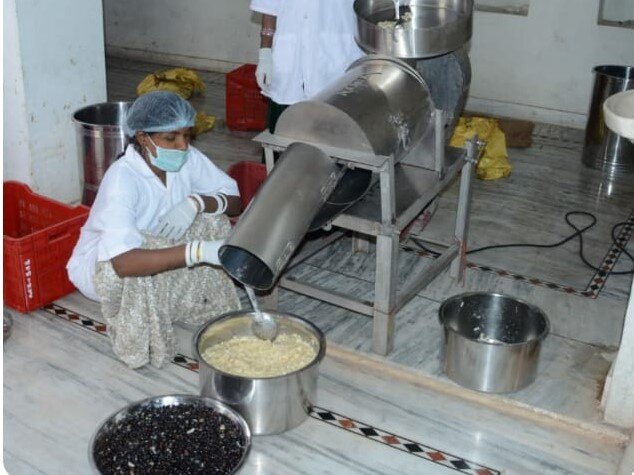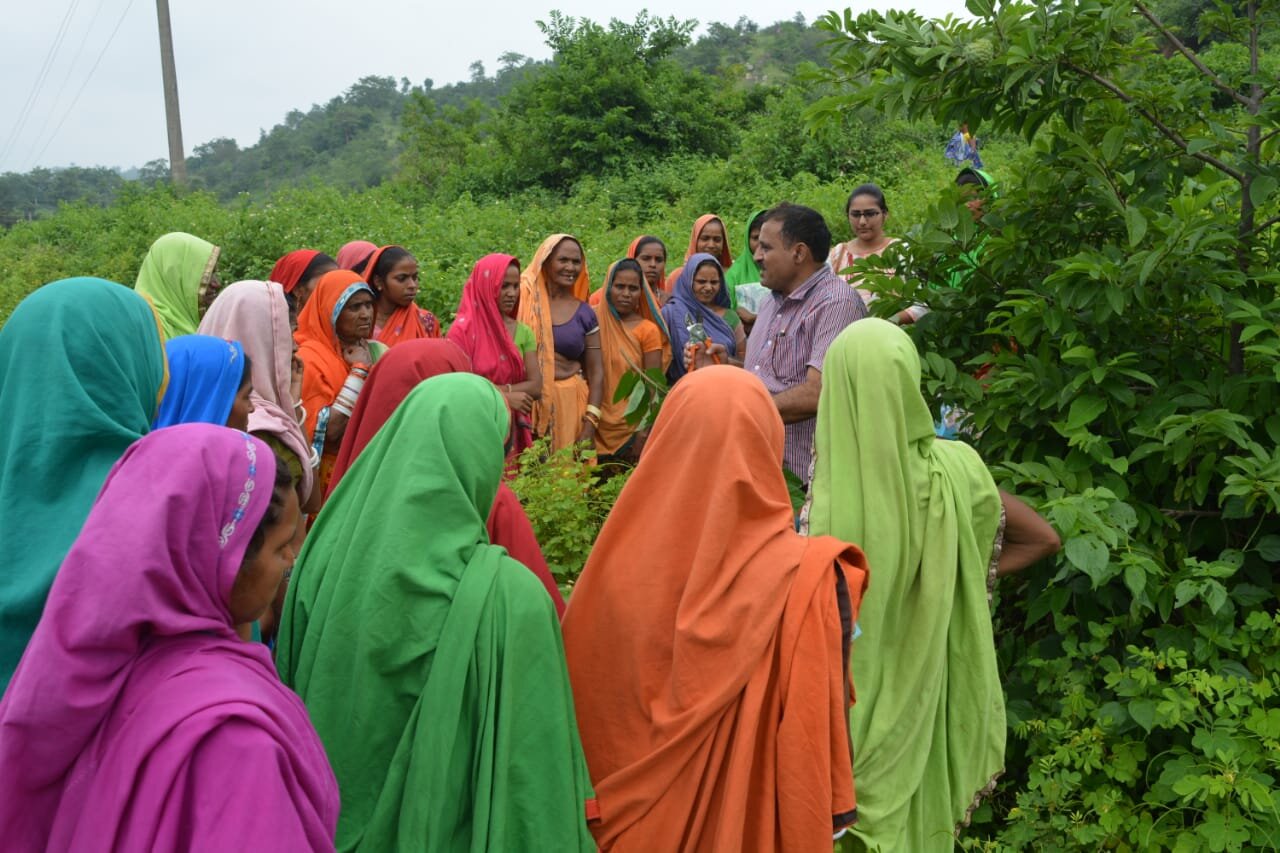Having grown up in rural Rajasthan, Rajesh Kumar Oza understands the challenging conditions faced by the tribal communities in and around Udaipur. With no reliable source of income, many families in this region turn to harvesting forest fruits and walking miles a day to sell them, earning much less than their market price.
Adding to the problem, forest fruits that grow wildly in this area, such as custard apple, have a very short shelf life, and the families relying on them for an income have no means of storing or preserving the fruits until they can be sold. Rajesh estimates that 60% of the fruit produced in this region goes to waste.
That’s why Rajesh and his co-founder Pooja Dilip Bohra are developing a value chain for underutilized fruits through their company Jovaki Agro Food. Jovaki Agro established a fruit collection center in the region and creates dignified jobs for tribal women in processing and freezing the forest fruits. By increasing the shelf life of the fruit and reducing waste, Jovaki Agro ensures the families collecting the fruits can earn a livable wage that extends beyond the harvest season.
Jovaki Agro is one of 10 small and growing businesses participating in Upaya’s 2020 Accelerator Program. We are pleased to introduce Rajesh, and his and Pooja’s vision for Jovaki Agro through our Entrepreneur Spotlight Q&A!
Q: What are the key problems your company aims to address?
“Being forest area, there is no permanent source of income opportunity in the tribal zone of Udaipur, Rajasthan. Our objective is to enhance woman empowerment & increase family incomes through employment generation and post-harvesting activity. 60% of our [generated revenue] goes to the tribal communities in the forms of wages and costs paid to harvest the forest fruits.
Under-utilization is another issue in this region. It has been observed that more than 60% of the fruit produced in tribal areas goes to waste after harvesting due to inefficient storage techniques and short shelf life of the fruit. What’s more, wild fruits being seasonal are not available to the industries throughout the year. We process the fruit locally, freeze the pulp, and store it to make it available to the Ice cream and catering industries for the entire year.”
Q: How did you become so passionate about this problem?
“Coming from a rural family and being a local resident, I knew the conditions of the tribal communities of Udaipur, Rajasthan. The custard apple is a wildly grown fruit in this forest area. Being perishable, it was not being fully utilized which resulted in the bulk waste. There was no other source of income for the tribal women in this zone. They used to walk miles away to sell the fruits, but they didn’t get the appropriate price for it. These were the root problems which made us passionate to work towards a solution.
Considering all these factors, Jovaki developed a value chain wherein the pre- and post-harvesting work and processing of custard apple & Jamun is done with the help of tribal women. Which also resulted in reducing the waste of fruits and growth in their family income.”
Q: What has been your greatest accomplishment to date?
“As of now, Jovaki has worked with 2,400 tribal people by providing employment to 600 tribal women with the processing of 2 product lines. This increased their family income. Jovaki wants to increase to multiple product lines in frozen fruits and vegetables so that we will directly impact the earning of more tribal people in the vicinity. Such operations will lead to more and more job opportunities for tribal women.”
Q: What has been your biggest learnings till date? (as an entrepreneur or of the sector in general).
“Working at the grassroot level with the tribal community, we got to understand their lifestyle in these difficult conditions without having many resources, lack of education, limited source of income, etc. Despite the daily struggles in their life, their the spirit of surviving and dealing with these things with a positive attitude was the biggest learning for us. These values also apply in handling our business, as there may be ups and downs, but we must move forward with the same spirit, motivation, and positive attitude.”
Q: What has been your biggest challenge so far?
“The processing of custard apple and jamun is being done with the help of the tribal women. It was a big challenge to get the business functioning in this remote area. Along with this, winning the trust of the tribal people was much more difficult. After getting them involved in Jovaki, training them, and developing their pre- and post-harvesting skills, however, Jovaki has overcome the challenges and will always work on improving.”
Q: What is your vision for your company? What is your vision for India or the world at large?
“Currently, we are working with three product lines: custard apple, Jamun, and green peas. The processing is done in the tribal zone in Udaipur, Rajasthan. In the coming Years, Jovaki wants to increase its product line in frozen fruit and frozen mix vegetables and extend our setups and processing to additional states of country and get the tribal community to work together, which ultimately benefits the tribal women and the tribal farmers.
Presently, 2400 tribal people are getting livelihood opportunity based on our current production of three products. Our primary vision is to increase the product line so as to get more involvement of the tribal community which leads to increase in their family income.”


















The Tribal Hermit is a social impact venture that works closely with 130+ Dhokra craft artisans from Kondagaon, Bastar, and Raigarh districts of Chhattisgarh to design, create, and sell their products.